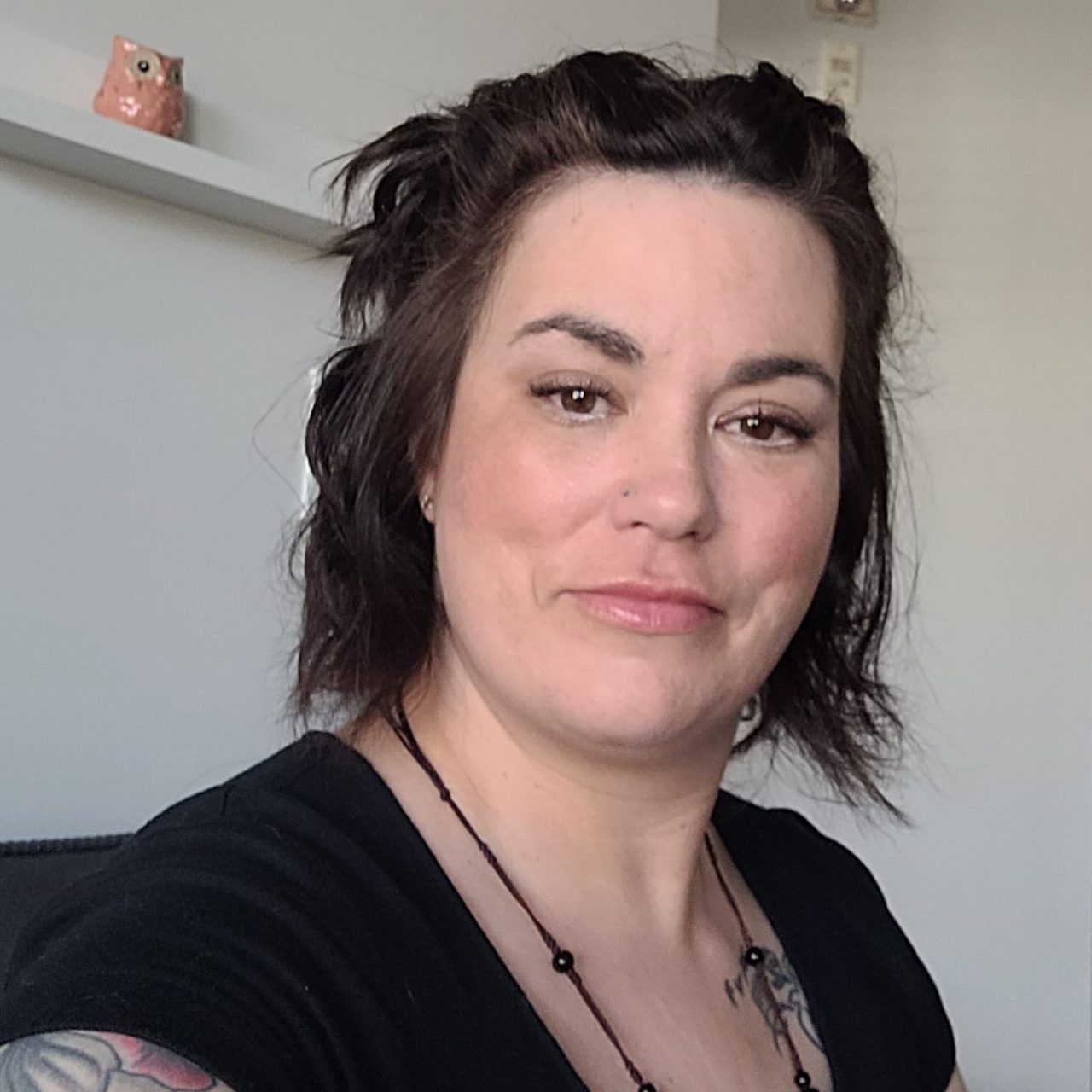By Agatha Grochowski
Better Care for Patients: Learning from Jocelan Yeomans, Individual with Lived Experience
By the age of 23, Jocelan Yeomans found herself married with three children. With a difficult childhood behind her, she felt overwhelmed and ill equipped at this stage of her life. Things took a turn when a friend introduced her to crack cocaine, leading her to a toxic relationship with a drug-dealing boyfriend and subsequently methamphetamine.
Jocelan’s story is all too familiar to many Albertans – from March to June 2020, the number of unintentional poisoning deaths related to fentanyl in Alberta more than doubled. Within these deaths, methamphetamine was listed as a contributing factor almost 60% of the time.1 Between 2015 and 2019, the number of methamphetamine users seeking treatment at emergency and urgent care centres tripled. In Jocelan’s case, her struggles led her to playing a role in improving care for patients experiencing methamphetamine addiction.
In March 2016, police raided Jocelan’s place, finding different quantities of drugs and firearms. Instead of a long jail sentence, Jocelan participated in Drug Court and a treatment plan in a long-term recovery centre for women. “I ended up with a group of people that saw something more in me,” Jocelan smiled, “By the grace of God, quite frankly.”
Through Drug Court, Jocelan was approached by the Methamphetamine Client Transitions to Primary Care project to provide her point of view as an individual with lived experience to their work. Jocelan jumped at the opportunity.
Methamphetamine Client Transition to Primary Care Pathways
Led by the Edmonton Zone Primary Care Networks, Alberta Health Services, Covenant Health, the George Spady Society, Poundmaker’s Lodge, and the Alberta Medical Association, the Methamphetamine Client Transition to Primary Care pathways support the transition of care for methamphetamine clients following discharge from a hospital or a detoxification/recovery centre.
The Hospital to Primary Care Pathway, and Detoxification/Recovery Centre to Primary Care Pathway support clients who are already connected to a family physician, nurse practitioner or physician assistant in the community. While the third pathway, the Attachment Protocol, supports clients with methamphetamine concerns who do not yet have a primary care provider and are interested in finding one. All three pathways include tools, resources, and links to help with the transition.
Jocelan and other individuals with lived experience, provided feedback from a patient’s perspective on their experiences and how the process could be changed to result in more positive outcomes. Also consulted in the development of these pathways were family physicians and multidisciplinary team members in hospitals, primary care, and detoxification/recovery centres.
Breaking Down Barriers for Primary Care Physicians
Motivated to do more for her patients struggling with substance use, Dr. Kitty Chan, a family physician in Edmonton, signed on to contribute to the pathways. “I always felt like I’m not quite figuring out just how to help.” Dr. Chan thought, “Maybe if I am a part this project, I could help these families a little better.” Dr. Chan’s perspective as a primary care physician was invaluable in exploring the barriers and apprehensions that are often present with providing care for these patients. She also recognized how vital these pathways are in addressing the unusual challenges that doctors may encounter. One of the challenges she has encountered in her own practice is navigating addiction during a pandemic.

When one of Dr. Chan’s patients was ready to detox but needed a negative COVID test to be admitted, Dr. Chan located a testing facility and stayed on the phone with the patient’s mother who drove her. “Sitting outside the testing facility, she was unable to go in because of the severity of her withdrawal symptoms and associated anxiety.” Dr. Chan recalled sadly, “These patients need advocates to help push and navigate for them when they are ready.”
Primary care doctors need more supports and resources to better prepare for the assortment of challenges and obstacles they may face. “Addiction is so diverse – no case is the same.” Jocelan said, “We can be difficult, just don’t give up!”
The pathways provide in-depth and organized tools and resources for health providers and patients alike, ranging from information on methamphetamine use and treatment options to community resources for commonly identified barriers to care. All three pathways are available on the Connect MD website on the Clinical Referral Pathways page.
Methamphetamine eLearning Course
In addition to the pathways, the project has also developed a 45-minute eLearning course providing foundational education on methamphetamine use and treatment for primary care and hospital-based providers. This CME accredited module is free and has been available on the PHC Learning Portal (available to anyone) and AHS My Learning Link since April 2021.
Jocelan and Dr. Chan both believe in the power these pathways will have in improving the standard of care for people with methamphetamine addiction across the province. Taking part in this project has become a part of Jocelan’s healing journey. “The way I was coming out of society and the wrongs in how I affected my community – it was like making an amends by using my experience in something really negative by bringing it to the light and making it a positive.” Jocelan is currently employed at the long-term recovery centre she was treated at and is working towards getting a degree in Theology.
Spread the Word and Share These Resources
Please share this article to spread the word about these new important resources. If you have any questions regarding the pathways or education module, contact the project team at methpathways@ewpcn.com.
References:

